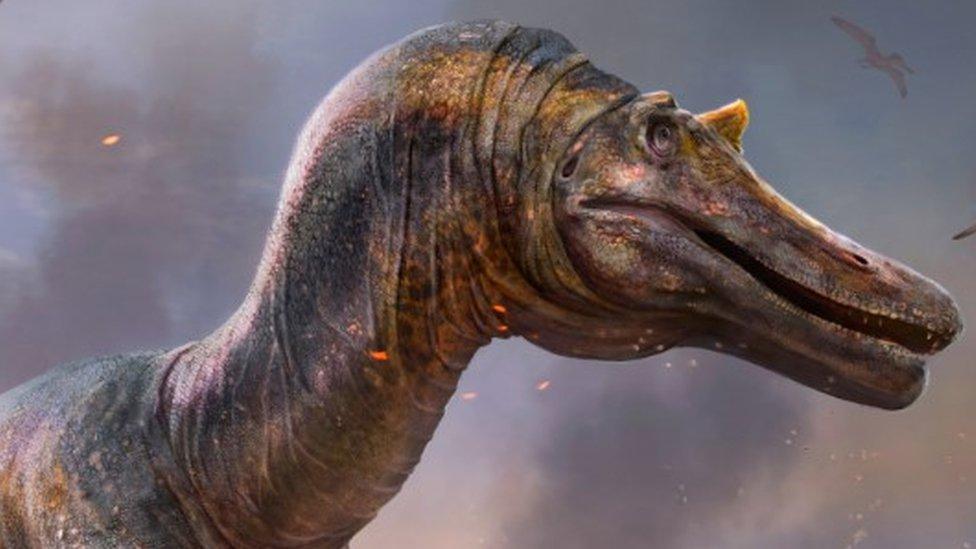Enormous fossil collection donated to University of Portsmouth
- Published
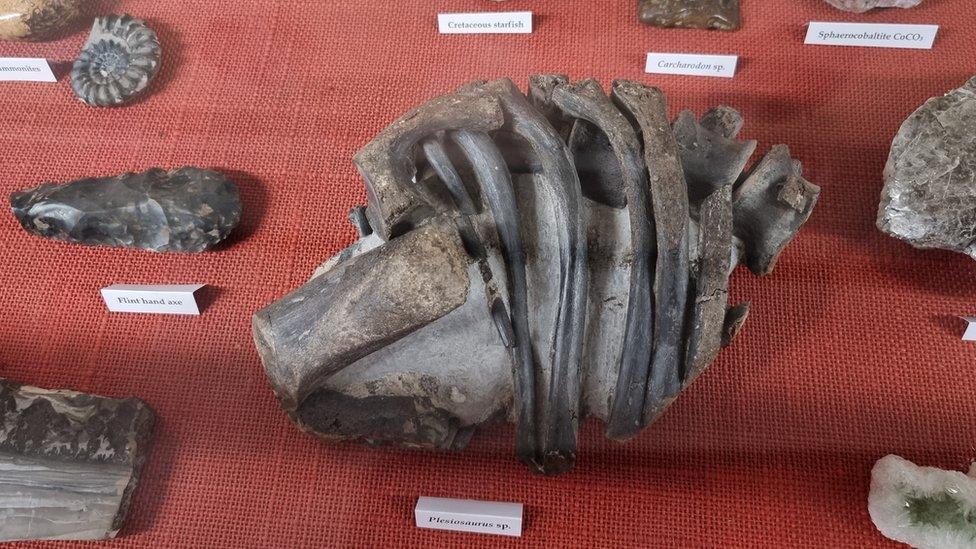
The collection includes fossil, mineral and rock specimens
A collection of more than 5,000 specimens of fossils, minerals and rocks has been donated to the University of Portsmouth.
The items include a plesiosaur thorax, Jurassic starfish, ammonites and prehistoric flint hand axes.
They were donated by the widow of renowned geologist Dr Paul Olver who died last year.
The university's Prof David Martill said it would be a "fantastic resource" for teaching.
The items - some of which dates back to the Proterozoic Eon some 1,500 million years ago - were amassed by Dr Olver over several decades.
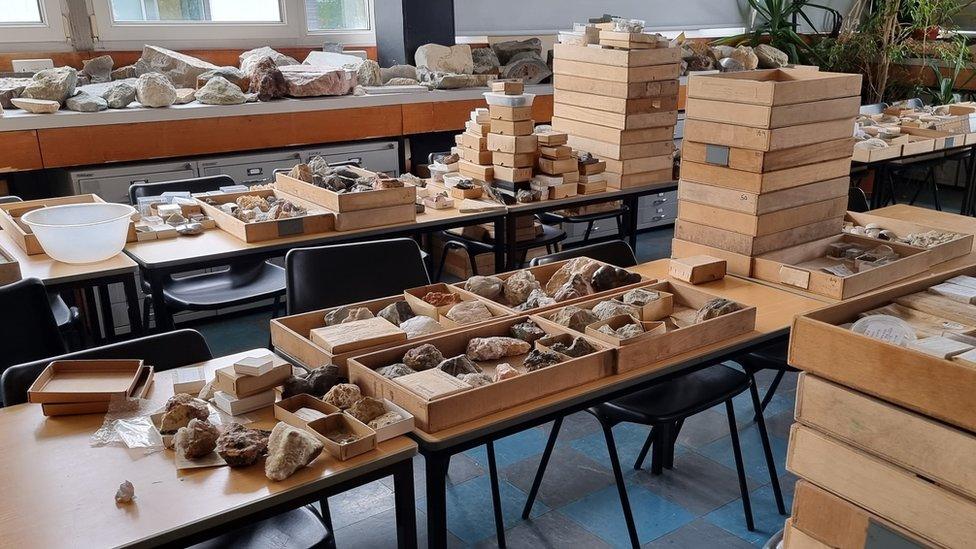
The collection has been brought to the University of Portsmouth where it will be used for teaching earth sciences students
His widow, Susan, said much of the collection was made up of specimens he saved from being "put into the skip" at the closure of the St Mary's College London University geology department in 1995.
Dr Olver was awarded the Geologists Association's prestigious Foulerton Award in August 2021 in recognition of his work in teaching and leading field trips, before his death in October.
Mrs Olver said she wanted the extensive collection to continue to be of value to students in earth sciences.
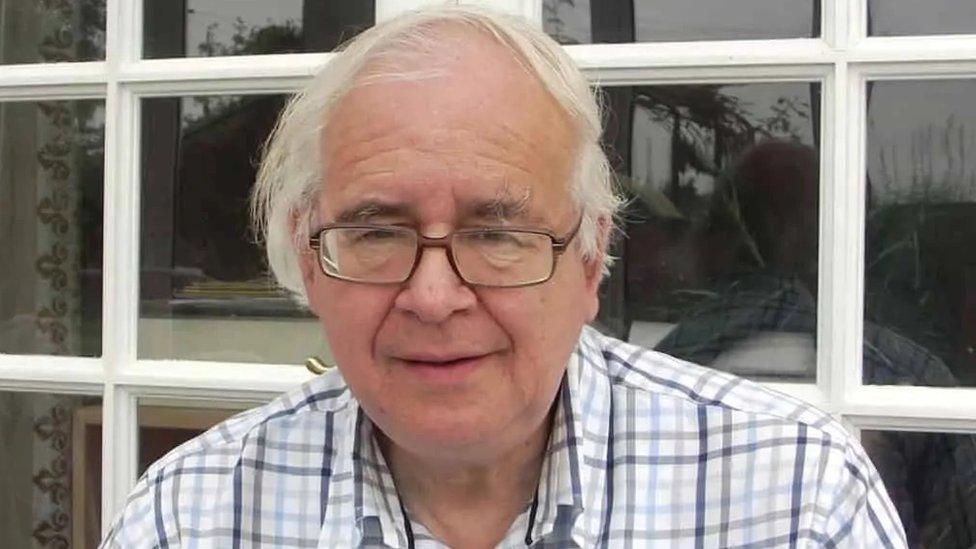
Dr Paul Olver amassed the collection over several decades
Prof Martill from the university's School of Environment, Geography and Geosciences said it took three truck loads to bring the "enormous" collection to Portsmouth from the Olvers' home in Herefordshire.
He said it contained "impressive specimens"
"There is a plesiosaur thorax, which is very rare, and often compared with reconstructions of the Loch Ness Monster.
"There's a beautiful starfish that's split right through the middle so you can see all the little segments in its arms and there's a very impressive ice age mammoth tooth.
"Paul spent his whole life as a dedicated geologist who was passionate about sharing his enthusiasm for earth history with others. It's very fitting that his collection will now be used to inspire our current and future students," he added.
Current palaeontology students are dividing the collection into fossils, minerals and rocks ready for the start of the new academic year.

Follow BBC South on Facebook, external, Twitter, external, or Instagram, external. Send your story ideas to south.newsonline@bbc.co.uk, external.
Related topics
- Published9 June 2022
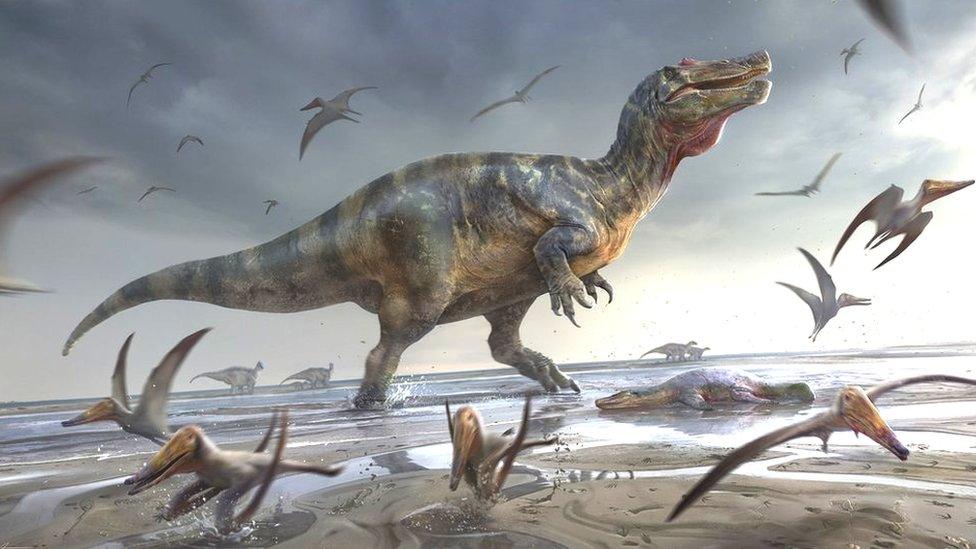
- Published29 September 2021
